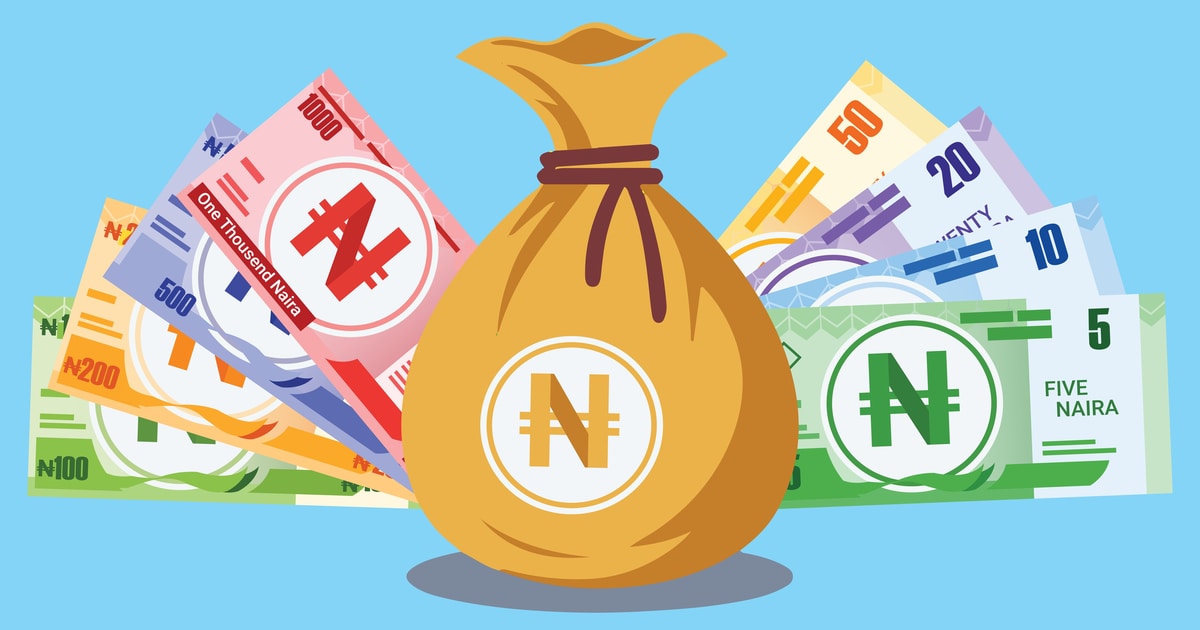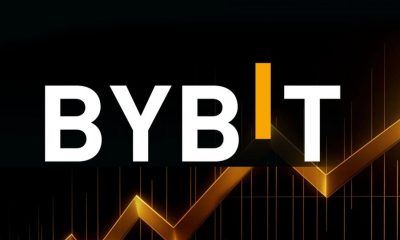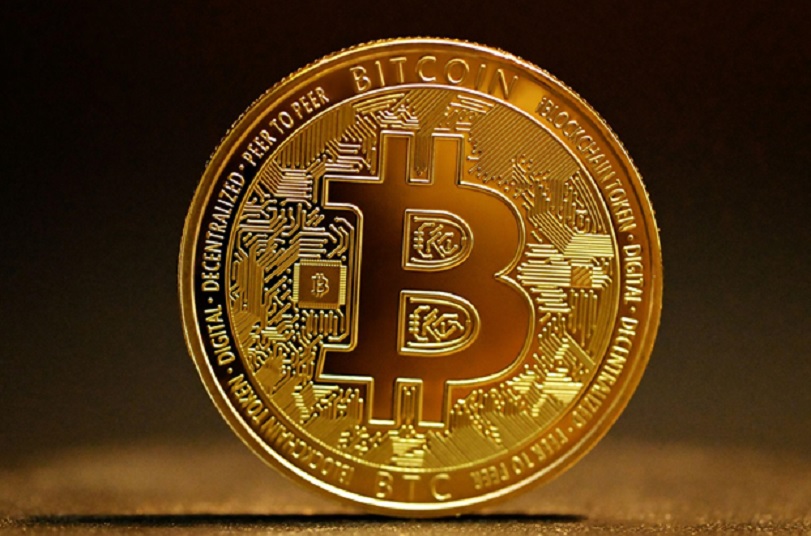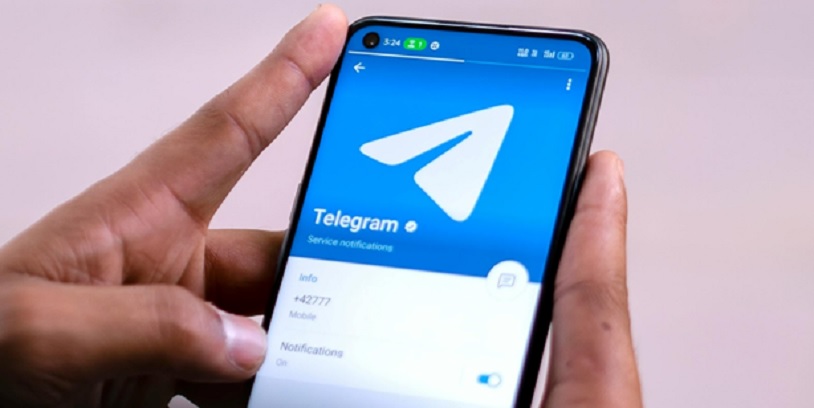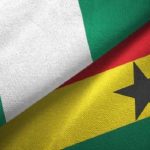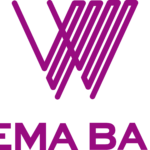Economy
Bitfinex Lists World’s First Mobile-Native Token Wrapped Minima

By Adedapo Adesanya
Bitfinex has listed the wrapped Minima ($WMINIMA) token, an ERC-20 token, aimed at helping build a truly decentralized network that empowers freedom worldwide and increases access to Web3 for any person with a mobile or IoT device.
Bitfinex is one of the first crypto exchanges to list WMINIMA, built on the world’s first mobile-native Layer 1 blockchain.
Minima’s presale for WMINIMA started on February 14, 2023, with 10 million tokens currently acquired out of the total supply of 125 million $WMINIMA tokens.
Traders on Bitfinex are taking this new innovation as a huge opportunity to become early adopters of the $WMINIMA token, by making deposits and purchases during the presale period. Effective 21st of March, 2023, on Bitfinex, trading for WMINIMA against the US Dollar (USD) and Tether tokens (USDt) will be available for all traders.
Wrapped Minima (WMINIMA) is a wrapped version of Native Minima (MINIMA), which has been issued on the Ethereum blockchain. Wrapped Minima (WMINIMA) enables Minima to be tradable on exchanges shortly after its Token Generation Event, without waiting for the technical integration of Native Minima ($MINIMA) onto exchanges, scheduled for Q3/Q4 2023. WMINIMA has an initial circulating supply of 98,100,000 coins and a total supply of 125,000,000 coins, with a listing price of $0.30.
The move is part of Bitfinex’s efforts to bring financial inclusion and financial freedom to less-advantaged and emerging communities around the world, particularly where there is currency volatility.
By becoming an owner of Wrapped Minima on Bitfinex, users will be helping build a truly decentralized network that empowers freedom all around the world.
The Minima protocol and its network have already been built, with Mainnet recently launching after several years in Testnet, yet Minima is still relatively unknown.
As a result, there is still a huge opportunity to become an early adopter of the world’s first mobile-native layer 1 blockchain before it becomes widely adopted.
How to trade WMINIMA on Bitfinex
WMINIMA is available to trade with US Dollar (USD) and Tether tokens (USDt). To sign up now, follow these few easy steps:
- Visit the Bitfinex website or download the Bitfinex mobile app and click on the sign-up button.
- Use the African Bitfinex LEOs community affiliate code “9r9ifKfHx” to get a 6 per cent discount on trading fees for life.
- Create an account by entering the required details: username, email, password, country of residence, and referral (optional).
- Create and confirm a log-in pin code or enable touch ID or face ID, if your phone enables it.
- You will be directed to the setup security page. Here, download the Google Authenticator app. If already downloaded, select the “I’ve installed the app” tab.
- Open the GA app to directly add your new token. Alternatively, you can also select to use the QR or Setup key. Enter your code to enable 2FA setup.
- Check your inbox to confirm your email address via an email sent by Bitfinex.
- After email confirmation, accept the Bitfinex Terms of Service to complete the account setup and proceed to the trading page.
- Once that is done you can now trade the WMINIMA on Bitfinex.
Economy
Nigerian Breweries Revenue Soars 53% to N733.2bn in Q2 2025

By Aduragbemi Omiyale
The unarguably dominant player in the country’s brewery sector, Nigerian Breweries Plc, impressed shareholders in the second quarter of 2025 with a 53 per cent year-on-year rise in revenue to N733.2 billion from the N478.8 billion achieved in the corresponding period of last year.
This improvement was largely driven by sustained innovation, strong commercial execution, optimisation of right pricing strategies amidst rising input costs, improvement in cost management, and enhanced operational efficiencies
Details of the financial statements of the brewery giant filed to the Nigerian Exchange (NGX) Limited showed that the net profit significantly grew by 204 per cent to N88.1 billion from a loss of N84.32 billion posted in the second of 2024.
This happened despite the rise in cost of sales by 32.71 per cent to N423.6 billion from N319.2 billion and a jump in selling, distribution, and administration expenses by 29 per cent to N159.6 billion from N124.0 billion in Q2 of 2024.
The Managing Director of Nigerian Breweries, Mr Thibaut Boidin, described the impressive performance as a reflection of its strong fundamentals and agility in navigating a challenging business landscape, which had been characterised by high inflation and constrained disposable income.
“The company also benefited from the prudent utilisation of the proceeds of the rights issue as the net financing costs went down significantly by 87 per cent.
“This deleveraging move has also strengthened the company’s balance sheet, in addition to lowering the exposure to financing costs in a high-interest rate environment,” he said.
Mr Boidin stated further that the elimination of foreign currency-denominated debts and the stability of the naira have resulted in a net foreign exchange gain during the period versus the loss reported in previous period.
Also commenting on the results, the Company Secretary and Legal Director, Mr Uaboi Agbebaku, reiterated the Board’s commitment to driving long-term value through a focus on cost optimisation, market execution, and strengthening brand equity across the portfolio.
“The full ownership and integration of the operations of Distell Wines and Spirits Nigeria Limited will further strengthen the platform for long-term value creation for our shareholders,” Mr Agbebaku added.
Economy
Fitch Warns Nigeria, Others Over Gold Reserves Backing

By Adedapo Adesanya
BMI, a unit of Fitch Group, has warned Nigeria and other sub-Saharan African central banks that have added gold to their reserves in recent years could face price and liquidity crises if the value of the commodity slides.
According to BMI, Nigeria, alongside bigger producers like Ghana and Tanzania, have been buying gold domestically to beef up their reserves, adding that this move has been accelerated by this year’s broader market volatility stoked by U.S. trade tariffs and other geopolitical risks.
Other countries include Kenya, Uganda, Rwanda and Namibia have taken active steps towards adding the metal into their reserves, while Burkina Faso has indicated it will build up its stockpile, and Zimbabwe has said its new ZIG currency is backed by gold reserves.
According to Reuters, Mr Orson Gard, a senior Sub-Saharan Africa analyst at BMI, gave the warning during an investor presentation on Wednesday.
“Gold is increasingly being used by sub-Saharan African markets as a strategic store of value,” Reuters quoted the analyst.
He raised risk worries citing Ghana, where an aggressive gold purchase programme has led to the metal accounting for a third of its reserves according to BMI calculations, driving a surge in the Cedi currency and potentially making the country’s exports less competitive.
The warning comes after the Governor of the Bank of Ghana, Mr Johnson Asiama, said on Wednesday that while the country was heavily exposed to movements in commodity prices, it was taking measures to protect itself against potential price shocks.
BMI also noted that the price of gold, which reached a record high earlier this year, may have peaked, adding that it faces potential downward pressure from any reduction in U.S. interest rates.
“Any sudden drop in global gold prices would have significant implications for those markets in sub-Saharan Africa which have rapidly increased gold as a share of their total reserves portfolio,” Mr Gard said.
He further warned that a gradual price decline over the medium-term could also have a negative impact on countries that started buying gold around its recent peak.
“This would not only weigh on reserve adequacy but would also undermine the perceived credibility of central bank policy,” he said.
Ghana and Tanzania, which also rely on gold exports, could be hit by the “double whammy” of a drop in the value of their reserves and lower export earnings, he said.
He also warned that governments could also struggle to convert their gold holdings into liquid assets like hard currencies, pointing to India and Argentina when they faced acute balance of payments challenges in the 1990s and 2000s, respectively.
Economy
Dangote Cement to Commission 3Mta Grinding Plant in Côte d’Ivoire
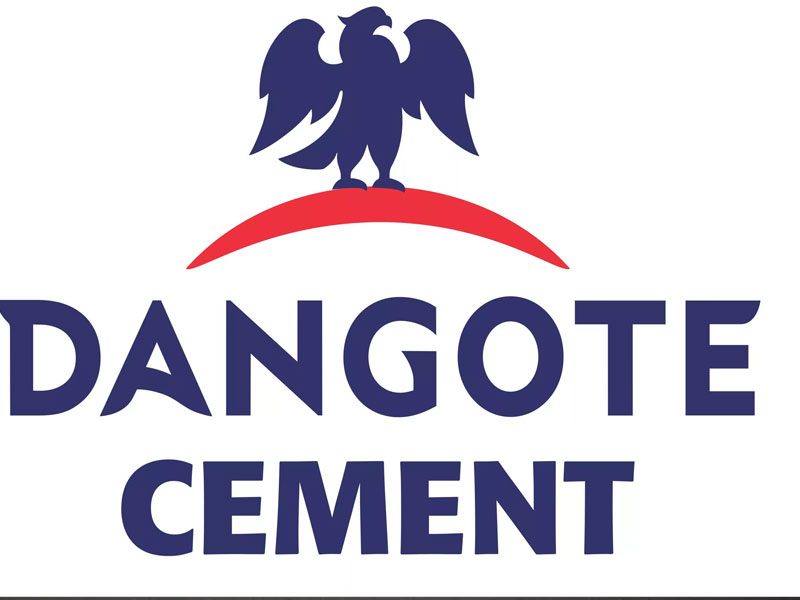
By Aduragbemi Omiyale
The 3Mta grinding plant of Dangote Cement Plc in Côte d’Ivoire will be commissioned within the next two months, the management has confirmed.
The facility, ready for commissioning by the third quarter of this year, is expected to strengthen the company’s position in Africa and contribute significantly to its exports.
Dangote Cement is Africa’s leading cement producer with 52.0Mta capacity across Africa. A fully integrated quarry-to-customer producer that have a production capacity of 35.25Mta in Nigeria.
Its Obajana plant in Kogi state, Nigeria, is the largest in Africa with 16.25Mta of capacity across five lines; while its Ibese plant in Ogun State has four cement lines with a combined installed capacity of 12Mta.
In the same vein, its Gboko plant in Benue state has 4Mta, and its Okpella plant in Edo state has 3Mta. Through its recent investments, Dangote Cement has eliminated Nigeria’s dependence on imported cement and has transformed the nation into an exporter of cement and clinker, serving neighbouring countries.
In addition, the company has operations in Cameroon (1.5Mta clinker grinding), Congo (1.5Mta), Ghana (2.0Mta clinker grinding and import), Ethiopia (2.5Mta), Senegal (1.5Mta), Sierra Leone (0.5Mta import), South Africa (2.8Mta), Tanzania (3.0Mta), Zambia (1.5Mta).
The chief executive of Dangote Cement, Mr Arvind Pathak, in a note to the Nigerian Exchange (NGX) Limited, said the company is encouraged by the growth in its export business.
“Export volumes from Nigeria increased by 18.2%, with 18 successful clinker shipments made to Ghana and Cameroon. This demonstrates the growing importance of our pan-African footprint and our ongoing commitment to regional trade and self-sufficiency,” he said.
Mr Pathak also revealed that the company’s strategic priorities remain focused on long-term value creation, saying, Dangote Cement has made significant progress in further strengthening its cost architecture.
“During the period, we began the phased delivery of 1,600 additional CNG-powered trucks, which will significantly reduce our logistics costs and enhance environmental efficiency,” he stated.
Commenting on the financials for the second quarter, which he said was built on the company’s strength, resilience, and adaptability amidst improvements in key macroeconomic indicators, he said the company’s focus on operational efficiency and cost containment is delivering tangible results.
“Group EBITDA rose by an impressive 41.8 per cent to N944.9 billion, while group profit surged by 174.1 per cent. This remarkable performance is a testament to our disciplined execution, strong cost leadership, and the strategic investments we have made over the years,” he disclosed.
-

 Feature/OPED6 years ago
Feature/OPED6 years agoDavos was Different this year
-
Travel/Tourism9 years ago
Lagos Seals Western Lodge Hotel In Ikorodu
-

 Showbiz3 years ago
Showbiz3 years agoEstranged Lover Releases Videos of Empress Njamah Bathing
-

 Banking7 years ago
Banking7 years agoSort Codes of GTBank Branches in Nigeria
-

 Economy2 years ago
Economy2 years agoSubsidy Removal: CNG at N130 Per Litre Cheaper Than Petrol—IPMAN
-

 Banking2 years ago
Banking2 years agoFirst Bank Announces Planned Downtime
-

 Sports2 years ago
Sports2 years agoHighest Paid Nigerian Footballer – How Much Do Nigerian Footballers Earn
-

 Technology5 years ago
Technology5 years agoHow To Link Your MTN, Airtel, Glo, 9mobile Lines to NIN





